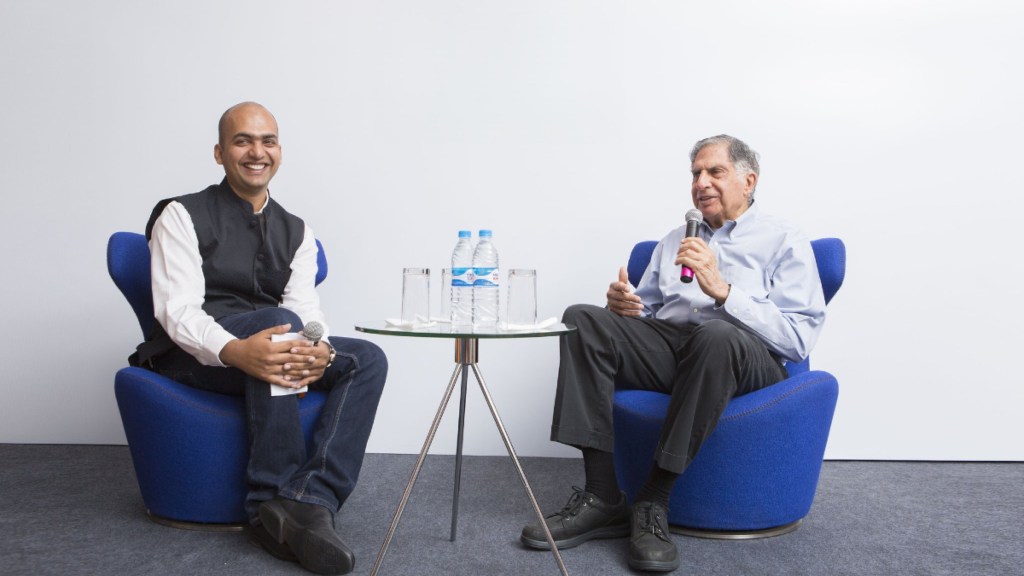In 2015, Xiaomi, a relatively unknown smartphone brand from China, was trying to break into India’s burgeoning smartphone market. Having already launched its first smartphone a year before, it was in search for the secret sauce to expand its reach. It had big dreams, a can-do attitude, and a catchy slogan— “Always believe that something wonderful is about to happen.” But the young startup also had stifling competition from giants like Oppo, Vivo, and Huawei to contend with.
At this critical juncture, a chance 45-minute meeting with one of India’s most revered business tycoons, Ratan Naval Tata, changed Xiaomi’s fortunes in the country, helping it become a household name that it is today.
Ratan Tata, a titan of industry who passed away recently at the age of 86, had built a legacy with Tata Group, turning the conglomerate into a globally renowned powerhouse. He was known for his sharp business acumen, but even more so for his philanthropic ways.
Tata was an avid supporter of startups, having invested in a bunch of companies, including Ola, Snapdeal and Urban Company. More than the financial backing, his involvement with any business was seen as a stamp of trust, lending credibility to the ventures he supported.
In April 2015, Tata acquired a small stake in Xiaomi, purchasing 40,588 shares, or 0.0024 percent of the company, through his firm RNT Associates International Pte, per the Chinese smartphone maker’s IPO filings. Although the value of the transaction remains a mystery to this day, the investment had a significant impact on Xiaomi’s future growth trajectory in India. At the time, the company was trying to establish itself in the highly competitive smartphone market, and having Tata’s backing was a game-changer.
For Manu Kumar Jain, then the head of Xiaomi’s India operations, that 45-minute meeting with Tata was a pivotal moment. Jain, who had joined Xiaomi in 2014, was tasked with leading the company’s efforts in India, and Tata’s investment was not just a financial boost but a tremendous vote of confidence. Jain reflected on Tata’s passing on X (formerly Twitter), saying, “It’s heartbreaking to hear about the passing of Mr. Ratan Tata…within just a 45-minute meeting, he agreed to invest…Having him as an investor and personal mentor was perhaps the greatest professional blessing I’ve ever received.”
“His sharp business acumen, attention to detail, and ability to offer profound insights were awe-inspiring,” Jain said. “But what stood out even more was his incredible humility and patience.”
Jain would go on to spearhead Xiaomi’s meteoric rise in India. Under his leadership, Xiaomi dethroned Samsung to become India’s top smartphone company by 2017, a title it held for several years. Tapping into India’s growing demand for affordable yet feature-packed smartphones, Xiaomi quickly became a force to reckon with.
The Mi 3, launched in July 2014, marked the company’s entry into the Indian market. From there, the brand rapidly expanded its portfolio, offering a variety of devices that catered to different segments of the market.
Xiaomi’s success in India wasn’t just about aggressive pricing. The company also adopted innovative sales strategies, such as flash sales, which created great buzz around its products. Although it started off as an online company, it focused on building its offline presence with self-branded stores. This way, it could reduce reliance on middlemen and pass on the cost benefits to customers.
Ratan Tata’s backing, combined with Jain’s leadership, helped Xiaomi carve out a strong position in India. Today, Xiaomi is a household name, known for delivering great value in the smartphone space, as well as in other categories like smart TVs. Tata’s early investment, though small in percentage, played a vital role in giving the brand the credibility and push it needed to win over Indian consumers.
Tata’s legacy will undoubtedly live on, not only through Tata Group but also through the startups and companies he supported. His passing marks the end of an era, but his influence will remain strong and continue to be felt across industries both nationally and internationally for years to come.
Rest in peace, good Sir Ratan Tata.









